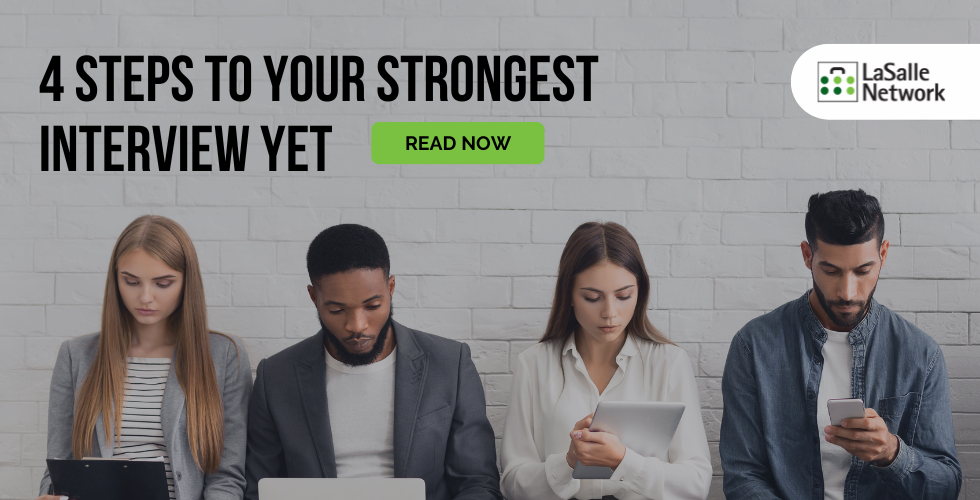Navigating the modern job market can be challenging, but with the right preparation, you can ace your interviews and land your dream job. Here’s an updated guide to ensure you put your best foot forward in 2024.
Do a deep dive:
Before stepping into an interview, comprehensive research is essential. In 2024, 70% of employers use social media to screen candidates, so make sure your online presence is professional and aligns with your resume. Additionally, understand the company’s culture, mission, and recent achievements. Candidates with a solid grasp of the company are more likely to impress interviewers.
Research the company, industry, and interviewer to pull out interesting trends and talking points for the interview. Consider recent awards won, press interviews or news about the company or industry, as well as the current responsibilities or achievements of the interviewer.
Less than 1% of survey respondents stated they researched companies’ competitors before an interview. Be able to name at least three big names within the industry during the interview to have dialogue around what this company does differently.
Practice responses to classic questions:
While every interviewer has their own style and set of questions they ask, preparing ahead to answer the basics is still important. It’s oftentimes the simple questions that can trip candidates up the most.
Practice answering the following questions with friends or family to ensure answers are clear and concise, while still offering valuable information:
- Tell me about yourself
- What skills/experiences do you have that set yourself apart?
- Why do you want to work at COMPANY?
- Tell me about a time when you had a conflict with a client/coworker? How did you resolve it?
- What are your strengths/weaknesses?
Highlighting your skills and experience effectively can set you apart, even if you’re a recent graduate. With 90.6% of employers preferring candidates with relevant work experience, relate your academic projects, internships, and volunteer work to the job you are applying for. Be prepared to discuss specific examples of your achievements and how they have prepared you for this role. Practice the STAR (Situation, Task, Action, Result) method to structure your responses.
Prepare questions to ask:
3 in 10 new employees leave a job within the first 90 days because they either did not have a strong understanding of the role before accepting the offer or did not like the company culture. Asking the following questions in an interview can help uncover the true opportunity, and prevent accepting the wrong role:
- How did COMPANY support employees during the course of the pandemic? How have things changed?
- Can you describe the team dynamic, and how you would like it to evolve in the next year?
- How have you invested in employee engagement in the last year?
- Why is the position open? Newly created or was someone promoted out of this role?
- What training does COMPANY offer employees?
Interviews should be a two-way street. When appropriate, ask the interviewer about themselves, their experience, and how they got to where they’re at.
Do a run-through:
Whether the interview is in-person or virtual, it is important to be physically ready ahead of time to help avoid last-minute jitters or roadblocks (literally and figuratively). Pick out a professional outfit, triple check the time and location, and be ten minutes early – either in the waiting room of the office or virtually on the video call. Spend the moments before the interview distraction-free to collect thoughts, take deep breaths and get into the right headspace – aka not texting or checking social media.
First impressions are crucial. Interviewers typically form an opinion about a candidate within the first 7 seconds of the interview. Dress appropriately—71% of employers consider the dress code a critical factor. Be punctual, maintain good posture, and greet your interviewers with a firm handshake, if interviewing in-person. Non-verbal communication, like eye contact and body language, accounts for 55% of communication during an interview.
If interviewing on-site, make sure to map out the commute, accounting for traffic and construction, and print several copies of resumes to bring along. If interviewing virtually, test the equipment and links in advance to troubleshoot any issues. Prepare a clean backdrop, have a virtual resume ready to send in case the interviewer doesn’t have it readily available, and make sure housemates are aware of the interview to not interrupt.
During the conversation, make sure to maintain eye contact, take notes, and, if something goes wrong, don’t stress. Know the interviewer has been in a similar position before too, and work to get the conversation back on track.
Let us help you land your next role! See the jobs we’re hiring for today.





